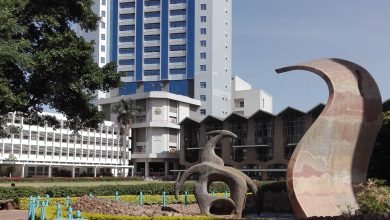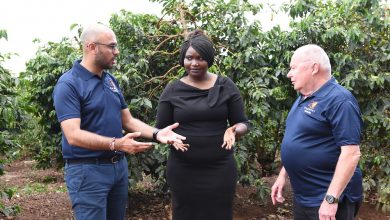United Arab Emirates Invites United Nations to Investigate Attack on Diplomat’s Residence in Sudan, as Conflict Escalates
The United Arab Emirates (UAE) has insisted that the Sudanese army attacked its ambassador’s residence in Khartoum and caused “extensive damage to the building and surrounding area.”
The confirmation was made by Abu Dhabi’s Salem Al Jaberi, Assistant Minister for Security and Military Affairs, and distributed in a statement to newsrooms on Friday.Al Jaberi condemned the Sudanese army’s “continued denial and attempts to blame others, while refusing to acknowledge responsibility.”The UAE is deeply involved the Horn of Africa geopolitics, which have become a proxy for multiple global conflicts, including Middle East politics, and the US-China tussle for global dominance.Al Jaberi, who pointed out that Khartoum broke the Vienna Convention on Diplomatic Relations (18th April 1961), also invited the United Nations (UN) experts to review the evidence and examine the damage caused by the attack.
According to the UAE’s foreign ministry, a “Sudanese military aircraft” attacked the building in the al-Mujahideen neighbourhood, an area under the control of the paramilitary Rapid Support Forces (RSF), which is at war with the Sudanese military that has left thousands dead and escalated into a proxy war pitting multiple interests, including the Abu Dhabi’s tussle with Saudi Arabia.
Abu Dhabi’s proxy, the Rapid Support Forces (RSF) was rebranded from the Janjaweed by the former, long-term, dictator of Sudan Omar el-Bashir in 2013. Since then, President Bashir has been overthrown, and the country was, before the current conflict, ruled by the agreement of the Sudanese army’s, General Abdel Fatah Al-Burhan and the RSF’s General Mohamed Degalo- better known by his nom de guerre Hemedti.
On 26th September, Sudanese army General al-Burhan, in his address to the United Nations General Assembly (UNGA), said that the RSF is “receiving political and logistical support at the local and regional levels.”
After the speech, al-Burhan told the media that UAE’s ruler Mohammed bin Zayed had agreed to “reconsider” in a phone call between the two leaders in July. The attack on Abu Dhabi’s ambassador residence now raises the stakes for both sides.



